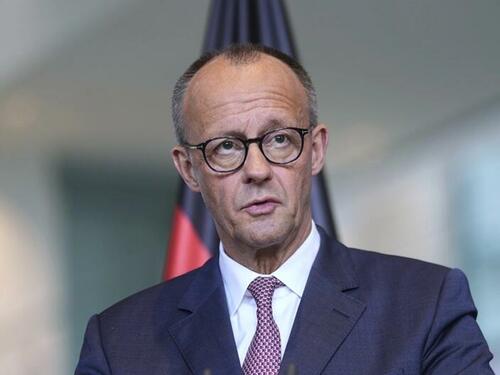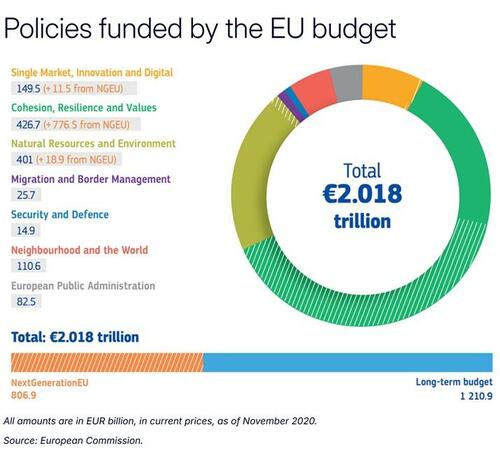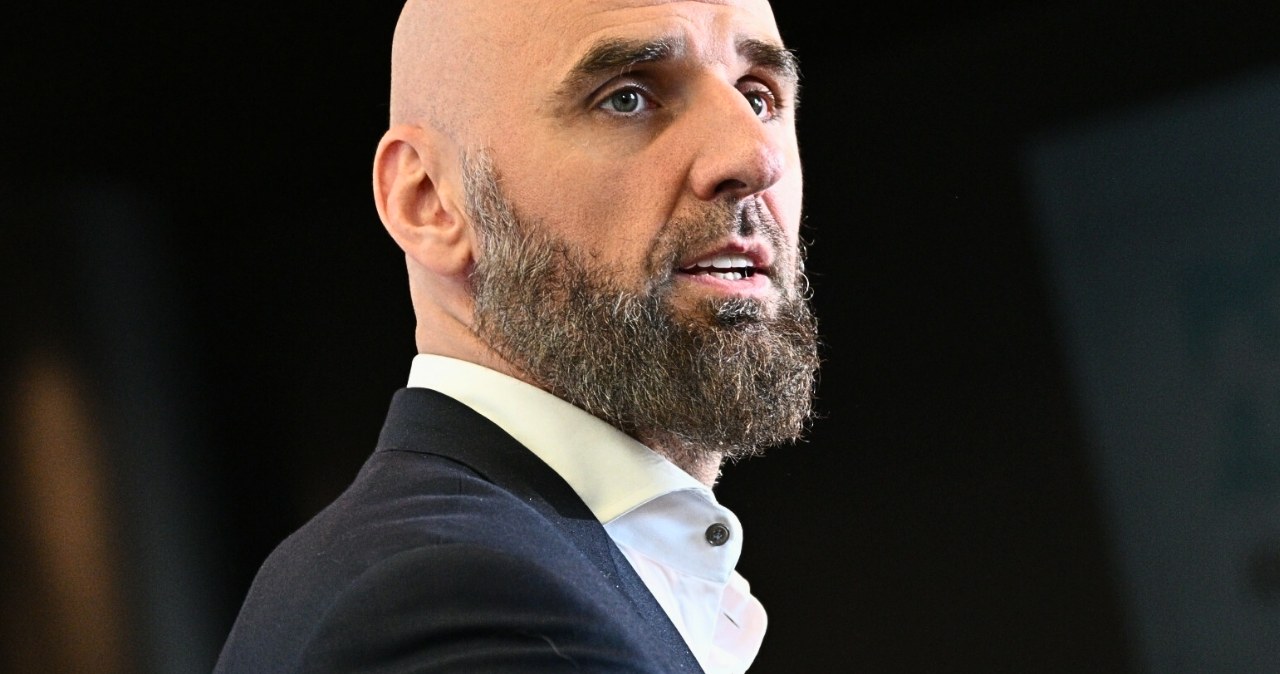
«Неприемлемые»: Бюджет Фон дер Ляйен на 2 триллиона евро, введённый Германией на фоне неудачного развертывания
На следующий день после того, как глава Еврокомиссии Урсула фон дер Ляйен представила амбициозный семилетний бюджет ЕС в Брюсселе на сумму около 2 триллионов евро, правительство Германии ясно заявило о своем решительном отказе, назвав план «неприемлемым».
"" Всеобъемлющее увеличение бюджета ЕС неприемлемо в то время, когда все государства-члены прилагают значительные усилия для консолидации своих национальных бюджетов. Об этом заявил Стефан Корнелиус, пресс-секретарь правительства канцлера Фридриха Мерца в Берлине в среду. Поэтому мы не сможем принять предложение Комиссии. "
Комиссия предложила центральный бюджет ЕС в размере 1,816 трлн евро (без учета погашения кредитов по COVID-19) на период с 2028 по 2034 год, что знаменует собой массовое увеличение по сравнению с текущим текущим бюджетом, который был формализован в 2021 году. Германия, как крупнейший вкладчик ЕС, будет на крючке примерно на четверть этих расходов. Об этом сообщает Bloomberg.
 канцлер Германии Фридрих Мерц, AP
канцлер Германии Фридрих Мерц, APФон дер Ляйен приветствовала, что это означает «бюджет для новой эры, который отражает амбиции Европы».Самый амбициозный бюджет ЕС за всю историюБолее стратегический, гибкий и прозрачный. Мы инвестируем больше в нашу независимость и в нашу способность реагировать, - говорится в заявлении.
Европейская комиссия предложила три новых налога, в частности, на электронные отходы, табачные изделия и компании с высокими доходами, в попытке погасить долг ЕС после Covid, который потребует примерно 25-30 миллиардов евро в год.
"" Мы не поддерживаем дополнительное корпоративное налогообложение, выдвинутое Комиссией, - сказал представитель канцлера Германии.
Вместо этого Берлин призывает блок придерживаться существующей программы реформ Комиссии и сохранять фокус на стратегических приоритетах в рамках бюджета ЕС. «Это направление является правильным для укрепления Европы на будущее», — добавил он.
Немецкий консервативный лидер Мерц всегда был последовательным в этом вопросе. «Нам нужно перестроить приоритеты в рамках бюджета ЕС», — сказал Мерц. «Новые обязанности не должны автоматически приводить к увеличению расходов... И это настоящий вызов, с которым мы сталкиваемся. "
FT описывает ужасно неудачное развертывание, члены которого устали от скрытной тактики давления фон дер Ляйен:
План Урсулы фон дер Ляйен по созданию крупнейшего в истории бюджета ЕС вызвал бурю негодования в Еврокомиссии, а коллеги предупреждают, что ультрацентрализованный стиль президента уже поставил под угрозу денежный звонок в размере 2 трлн евро.
Готовился в течение нескольких месяцев и в основном держался в секрете от команды комиссаров фон дер Ляйен.Проект бюджета на 2028-2034 годы вызвал редкое внутреннее сопротивление, которое заставило пойти на значительные уступки за несколько часов до публикации.
Восстание подчеркнуло долгое негодование по поводу ее подхода «резинового штампа». После долгих лет обнесенного стеной принятия решений, которые, по мнению критиков, сделали Брюссель негибким и склонным к ошибкам.
Я никогда не видел этого так плохо. Об этом сообщил один высокопоставленный дипломат из страны-члена ЕС, который работал над тремя бюджетными переговорами. "Никто не знал, что они получают или за что платят до последней минуты. "
Как и ожидалось, самый ранний ответ в среду поступил из Венгрии, а премьер-министр Виктор Орбан заявил: Шокирующая новая утечка бюджета ЕС показывает опасную авантюру: Украина получит значительное финансирование, а европейские фермеры проиграют. Этот план рискует оттеснить сельскую Европу и угрожать семьям по всему континенту. Брюссель не должен отказываться от европейских фермеров, чтобы финансировать Украину. "
Такие страны, как Венгрия, а также Словакия и Польша, или другие консервативные / националистические группы населения, не будут чувствовать себя комфортно с более жесткими условиями «верховенства закона», связанными с финансированием.
Еще одной новинкой в предложении фон дер Ляйен является ее сильный акцент на верховенство закона. Ее первый мандат привел к тому, что ее исполнительный директор заморозил миллиарды в фондах ЕС для Венгрии и Польши из-за их демократического отступления и продолжающихся юридических нарушений..
Замораживание, однако, покрыло только часть выделенных средств для стран-неудачников, что вызвало критику в адрес Еврокомиссии за то, что она небрежно разрешала денежные потоки налогоплательщиков, несмотря на нарушения законодательства ЕС и основных прав.
Споры оставили след на фон дер Ляйен: она теперь намерена сделать все средства, от сельскохозяйственных субсидий до социальной политики, обусловленными уважением к верховенству закона.
"" Верховенство права является обязательным для всех средств из бюджета ЕС. Она сказала в среду.
"" Мы обеспечим ответственные расходы и полную подотчетность, с очень сильными гарантиями и правильными стимулами. Это служит гражданам. "
Таким образом, очевидно, что существует множество препятствий, учитывая, что новое предложение должно быть единогласно одобрено всеми 27 государствами-членами ЕС и принято Европейским парламентом на переговорах, которые, вероятно, будут разворачиваться в течение двух лет.

Бюджет на 2028-2034 годы должен быть утвержден до конца 2027 года - и многое может произойти между тем, особенно в отношении российско-украинской войны. Европейская комиссия планирует включить 100 миллиардов евро на финансирование Украины как часть нового бюджета.
Конечно, президент Трамп выразил желание увидеть мир задолго до этого, но эти усилия пока ничего не достигли. Венгрия и Словакия также могут многое сказать.
Тайлер Дерден
Фри, 07/18/2025 - 02:45












